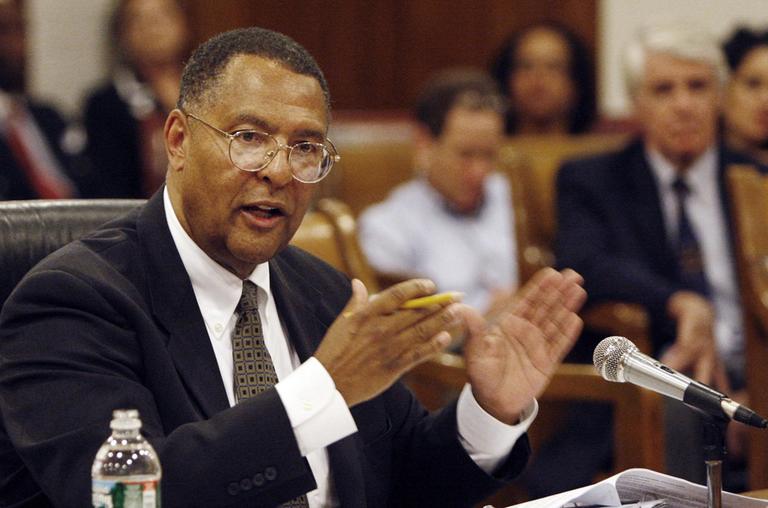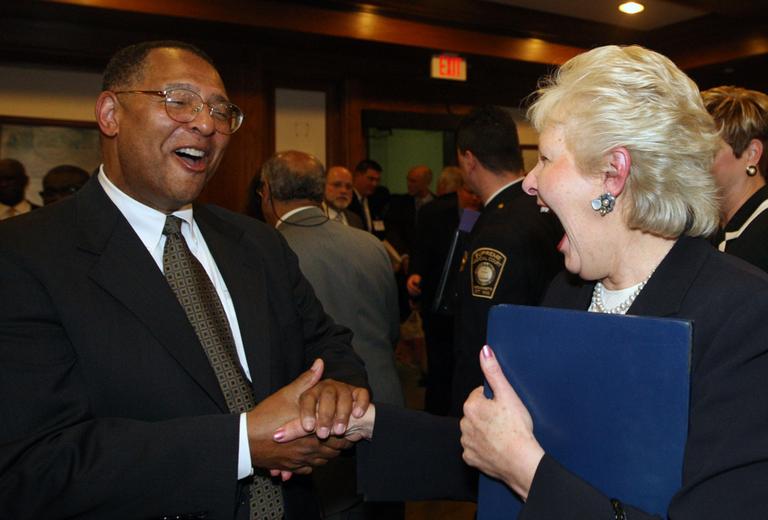Advertisement
Justice Ireland Addresses Probation Dept. Scandal At Confirmation Hearing
Resume
BOSTON — The ongoing hiring scandal at the state Probation Department was just one of the major topics brought up at Wednesday's confirmation hearing for Justice Roderick Ireland. The 65-year-old Springfield native has been tapped by Gov. Deval Patrick to be the new chief justice of the state Supreme Judicial Court. If confirmed, Roderick will be the first African-American to lead the court.
When he was nominated just two days after the November election, Ireland was only too happy to defer any questions from the press regarding the Probation scandal. The scathing Ware report looking into the questionable hiring practices and charges of widespread patronage at the department had not yet been released. But now, with the report public, members of the Governor's Council wanted Ireland's take on the matter.
"I feel very strongly that the judiciary should have supervisory responsibility for Probation."
Justice Roderick Ireland, nominee for chief justice of the SJC
"I feel very strongly that the judiciary should have supervisory responsibility for Probation. I don't think Probation should be transferred into the executive branch," Ireland said. "My view is that the courts and Probation work together, well, and the judiciary is in the best position to supervise and manage Probation."
Ireland's position is different from that of the governor, who is calling for the department to be brought under the Executive Office of Public Safety. Ireland did say he does not see a problem with potential hires having a recommendation from elected officials, so long as the candidate is qualified for the job and there's no quid-pro-quo.
Ireland is no stranger to the judiciary. He's been a judge for 33 years and has served on the SJC as an associate justice since 1997. But as chief justice he would be the face and voice of the third branch of government. He said as chief, he hopes to improve relations with the legislative and executive branches, as well as the way the judiciary operates, but he hinted there would be no sweeping changes.
"The chief justice does not have a magic wand where they can just say, 'I'm going to change things, and everyone else is going to have to follow whatever I want changed,' " Ireland said. "The chief is just one of seven judges. It's a seven-judge court. We vote on everything, including standing orders, we vote on policy issues, it's just — the chief — it's like herding cats in a way."
Among the items on Ireland's to do list: He wants to utilize the courts to help curb the high school dropout rate, and he wants to better inform the public of how the court system works and how complaints against the courts are processed.

Ireland also told the Governor's Council that he thinks most judges are doing a good job, and said there are remedies in place for those who are not. But Councilor Mary Ellen Manning urged him to be tough with judges who aren't doing a good job.
"The perception is that the judges circle the wagons around these offending members of the judiciary and what we need — I'll speak for myself — what I need, and what I believe my constituents need, is a chief justice who's going to say, 'Stop right there,' " Manning said. "We need you to be towing the line."
Ten people spoke in opposition to Ireland's nomination. Some disagreed with the SJC's specific rulings, including the decision that paved the way for same sex-marriage in Massachusetts. Others had beefs with the court system as a whole. None questioned Ireland's abilities or job qualifications.
About a dozen people, including the current Chief Justice Margaret Marshall and former Chief Justice Herbert Wilkins, spoke in favor of Ireland's nomination.
At the conclusion of the hearing, Ireland remained cautious about the outcome.
"I'm going to wait and let them do what they need to do, and I'm going to keep my fingers and toes crossed, and my wife's going to have her fingers and toes crossed, and we'll just have to let them take their time and reach their decision in their own way," Ireland said.
The council is expected to vote on Ireland's nomination as early as next week.
Earlier:
This program aired on December 2, 2010.
